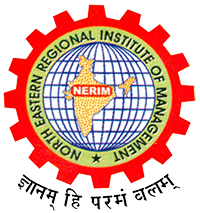Psychology as a Social Science tries to understand the behaviour of an individual in different situations while also equipping the learner with various abilities to live a well adjusted life. The NEP has given rise to a novel dimension in fine-tuning and accelerating the learning processes of a student. Keeping this in mind, the emergence of LOCF (Learning Outcome-based Framework) has taken place. In the present context, the syllabus of B.A. in Psychology is framed in a way so as to help students gain a fundamental as well as an advanced knowledge of Psychology. Teaching is dedicated to the actualization of human potential and with an appreciation and respect for individual uniqueness, diversity and achievement. The pursuit of knowledge within psychology as a scientific discipline and profession, along with enhanced skills is a step towards preparing students to meet the needs of an increasingly competitive job market. The FYUGP in Psychology of Dibrugarh University offers a general framework for understanding the different concepts of psychology from a conceptual level to a level wherein the students can gain self-understanding, reflexivity and achieve personal growth. Through a holistic and multidisciplinary approach, it seeks to enhance and diversify the landscape of undergraduate education in Psychology. This is particularly Page 1 important in the case of Psychology which is increasingly being recognized as an allied discipline catering to the needs presented by the healthcare industry. Psychology graduates today need to be prepared not just in textbook understanding of concepts but also in real-life applications that take into account a holistic understanding of a larger, socio-cultural-economic system within which their skills may be put to use.
In cognizance of the diverse and complex array of needs that students experience today, a curriculum of Psychology must take into account the following considerations:
- A curriculum flexible enough to accommodate students from diverse academic backgrounds.
- Clearly defined learning outcomes in the Courses which align with goals of skill-development and skill-applicability along with personal growth
- A multidisciplinary approach with emphasis on the environment, the traditional wisdom and knowledge systems of indigenous cultures, and the contemporary issues and concerns that the society today faces
- Availability and flexibility of multiple resources and methods of evaluation in the process of learning.
The overall FYUGP in Psychology and its constituent courses (as presented in this document) are designed with these values and ideas in mind. The initial courses of the programme are designed to accommodate students from multiple academic disciplines and to enable them with a strong conceptual basis in Psychology. Efforts have also been made to include courses which have a theoretical basis as well as others that encourage abstract thinking and self-exploration, as is expected in a student of Psychology. The structure of the Programme has also been devised keeping in mind the possibility and ease of multiple exits, wherein at each exit level, a student will have foundational as well as skill-development learning opportunities so as to be employable or even self employed. However, to maintain a degree of uniformity the Programme is designed in a manner that students at each stage of possible exit leave with a sound basis of Psychology.
Efforts have also been made to include content that would be considered a minimum requirement at each stage of completion. The latter part of the programme has been designed to inculcate a strong scientific temperament and research-orientation in students through the various skills and application based courses. This is deemed as an important part of preparing students for a future in which they can pursue higher education and research. It will also equip students with the ability to not just absorb what is imparted in the process of learning but also to be thinkers and creators who can contribute towards the process of ideating new dimensions in Psychology. The teachers and learners will jointly engage in a creative exercise of knowledge construction and skill-building and thereby create a community of learners who are empowered citizens of the future.
Dibrugarh University has initiated visionary measures to educate students to be Global Professionals with the expertise, values and skills to handle psycho-social problems of the community at large. Psychology as an Under Graduate (UG) Programme will be introduced for the first time in the Colleges under Dibrugarh University w.e.f. the session 2023-24. The Syllabus has been designed to fulfill a long-standing requirement for emerging socially relevant Programmes in this part of the region. Important measures have been taken while designing the syllabus in order to enhance academic standards and quality by including innovation and improvements in the new curriculum. This includes introducing new pedagogical methods in the teaching learning processes, assessments and evaluation systems. Curricular contents also include the traditional as well as novel approaches and trends in the development of the Courses of the Programme. Being designed in the CBCS mode and as per the Four Year Under Graduate Programme (FYUGP) recommended by NEP 2020, this curriculum will facilitate student mobility across institutions within the country and also enable potential employers to assess the performance of students as per global standards.
- Imparting knowledge of basic concepts and methods of Psychology along with developing the ability in learners to appreciate the challenges in application based settings.
- Developing a strong sense of ethical and moral aptness in general and in the context of learning and its assessment in particular.
- Developing respect for social diversity while living in a pluralistic society so as to increase the social and cultural relevance of learning.
- Nurturing fundamental capabilities along with deep understanding of Psychology in their day-to-day life, so as to become active, self-directed learners with capacities for critical understanding and thinking.
- Acquire multi-disciplinary knowledge that provides creative combinations of disciplines for study, thereby creating new avenues for lifelong learning.
- Developing and inculcating in the learners the ability to research with the help of psychological theories, clinical practices, research-led teachings and hands-on laboratory experiments.
| Code | Title | Credit [L-T-P-Total] |
|---|---|---|
| C-1 | Fundamentals of Psychology – I | 4 |
| Minor 1 | Basic Concepts in Psychology | 4 |
| GEC-1 | Child and Adolescent Psychology | 3 |
| AEC-1 | Modern Indian Language | 4 |
| VAC 1 | Understanding India / Health and Wellness | 2 |
| SEC 1 | Life Skill Development | 3 |
| Code | Title | Credit [L-T-P-Total] |
|---|---|---|
| C-2 | Fundamentals of Psychology - II | 4 |
| Minor 2 | Understanding Mental Health | 4 |
| GEC 2 | Stress Management | 3 |
| AEC 2 | English Language and Communication Skills | 4 |
| VAC 2 | Environmental Science / Yoga Education | 2 |
| SEC 2 | Self and Personality Development | 3 |
| Code | Title | Credit [L-T-P-Total] |
|---|---|---|
| C-3 | Life Span Development - I | 4 |
| C-4 | Community Psychology | 4 |
| Minor 3 | Psychology over the Life Span | 4 |
| GEC 3 | General Psychology | 3 |
| SEC 3 | Introduction to Psychological Testing | 3 |
| AEC 3 | Communicative English / Mathematical Ability | 2 |
| Code | Title | Credit [L-T-P-Total] |
|---|---|---|
| C-5 | Life Span Development – II | 4 |
| C-6 | Understanding Psychological Disorders | 4 |
| C-7 | Social Psychology | 4 |
| C-8 | Positive Psychology | 4 |
| Minor 4 | Psychology of Health and Well-Being | 4 |
| Code | Title | Credit [L-T-P-Total] |
|---|---|---|
| C-9 | Systems and Schools in Psychology – I | 4 |
| C-10 | Introduction to Clinical Psychology | 4 |
| C-11 | Introduction to Counselling and Psychotherapy | 4 |
| Minor 5 | Living in a Media World | 4 |
| - | Community Engagement / Internship | 4/2+2 |
| Code | Title | Credit [L-T-P-Total] |
|---|---|---|
| C-12 | Systems and Schools in Psychology – II | 4 |
| C-13 | Research in Psychology | 4 |
| C-14 | Indian Psychology | 4 |
| C-15 | Health Psychology and Behaviour Medicine | 4 |
| Minor 6 | Behavioural Health Promotion | 4 |
| - | Project | 2 |
| Code | Title | Credit [L-T-P-Total] |
|---|---|---|
| C-16 | Psychopathology – I / Organizational Behaviour - I / Counselling - I | 4 |
| C-17 | Neuropsychology | 4 |
| C-18 | Psychotherapy | 4 |
| C-19 | Research Ethics and Methodology | 4 |
| Minor-7 | Contemporary Psychology | 4 |
| Code | Title | Credit [L-T-P-Total] |
|---|---|---|
| C-20 | Psychopathology – II / Organizational Behaviour - II / Counselling - II | 4 |
| C-21 | Understanding Self and Others | 4 |
| Minor-8 | Environmental Psychology | 4 |
| C-22 | Research / Dissertation (Collection of Data, Analysis and Preparation of Report) / 2 DSE Courses of 4 credits each in lieu of Dissertation | 8/4+4 |


